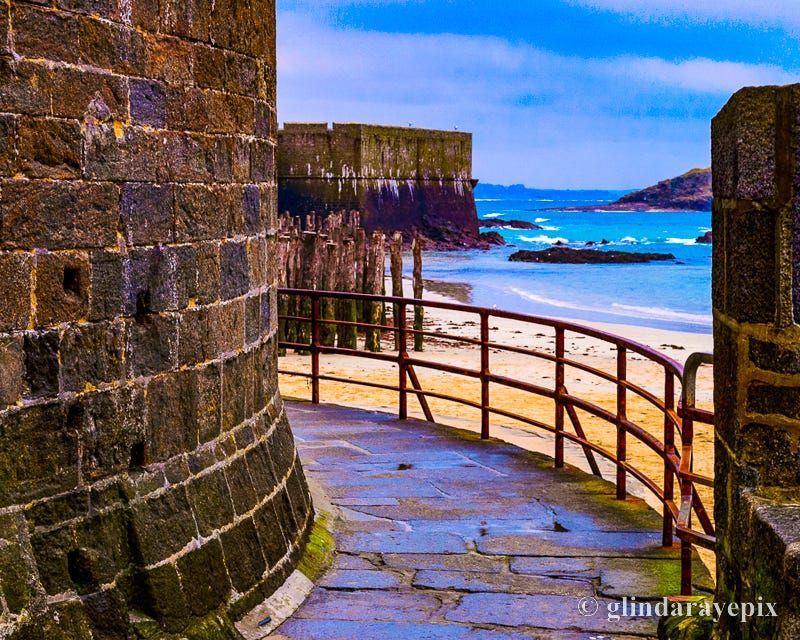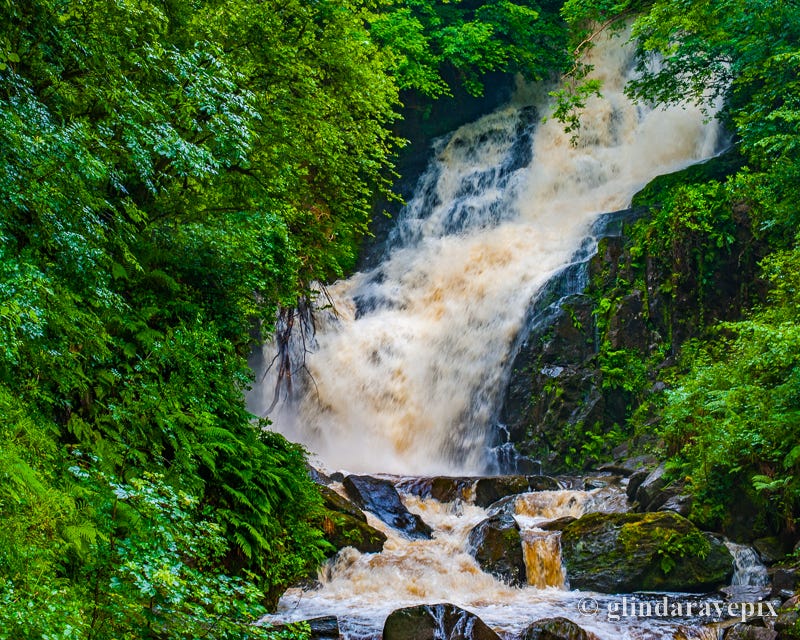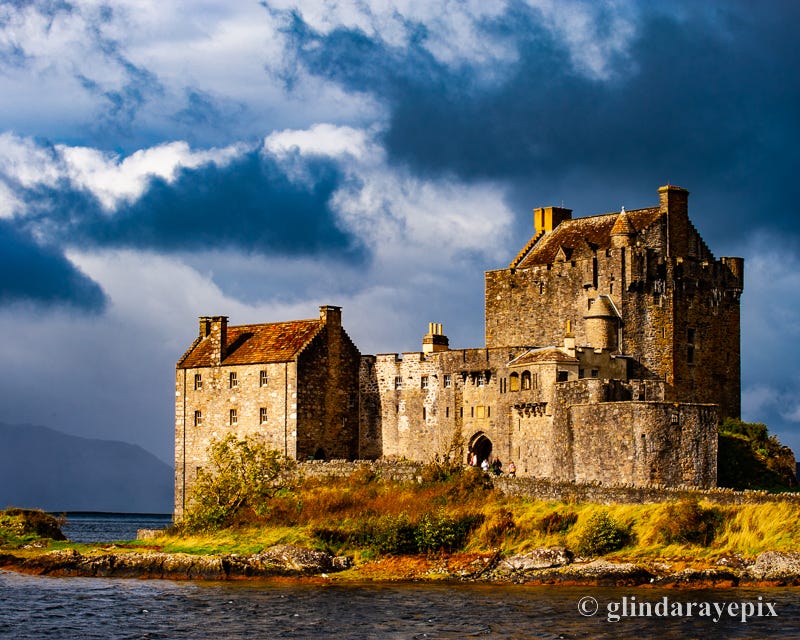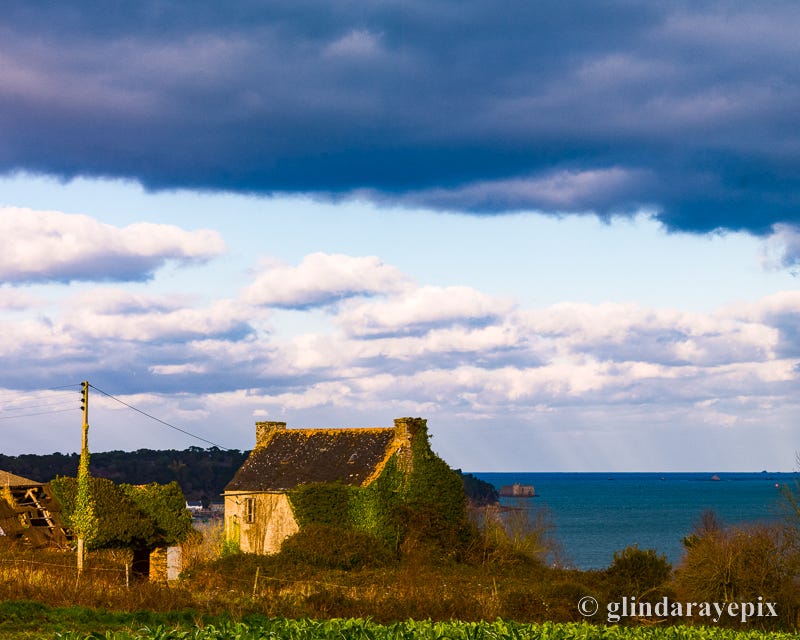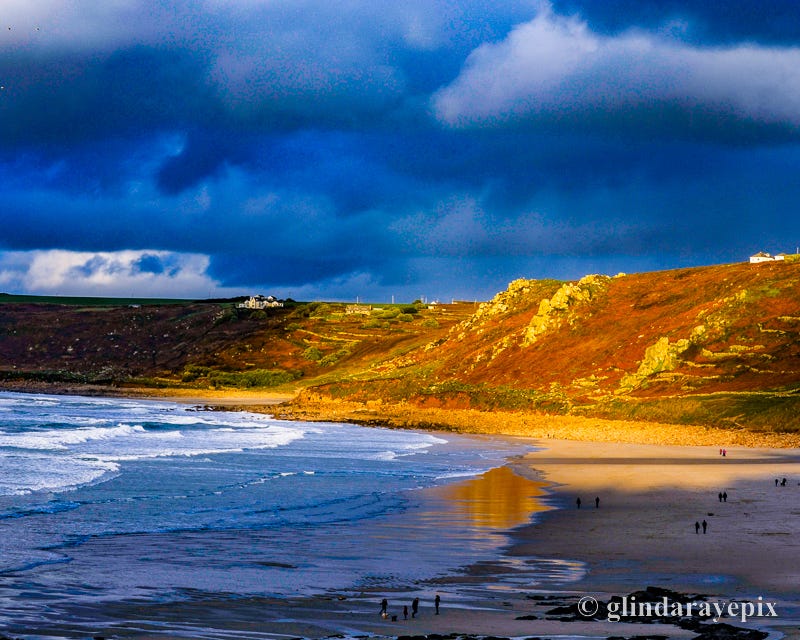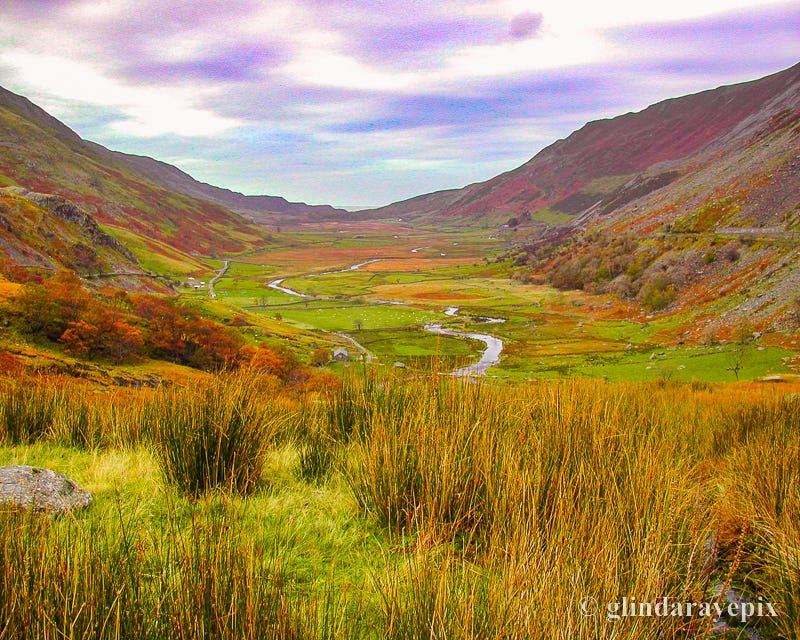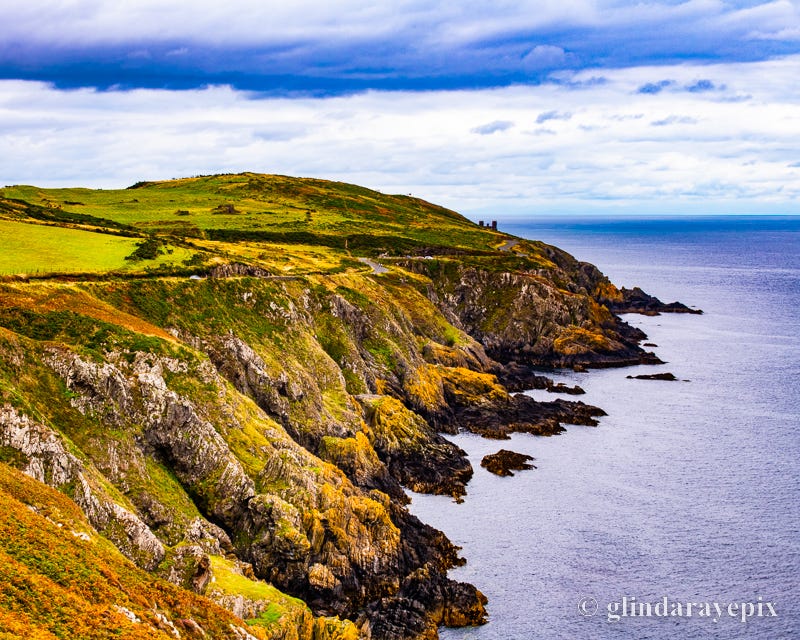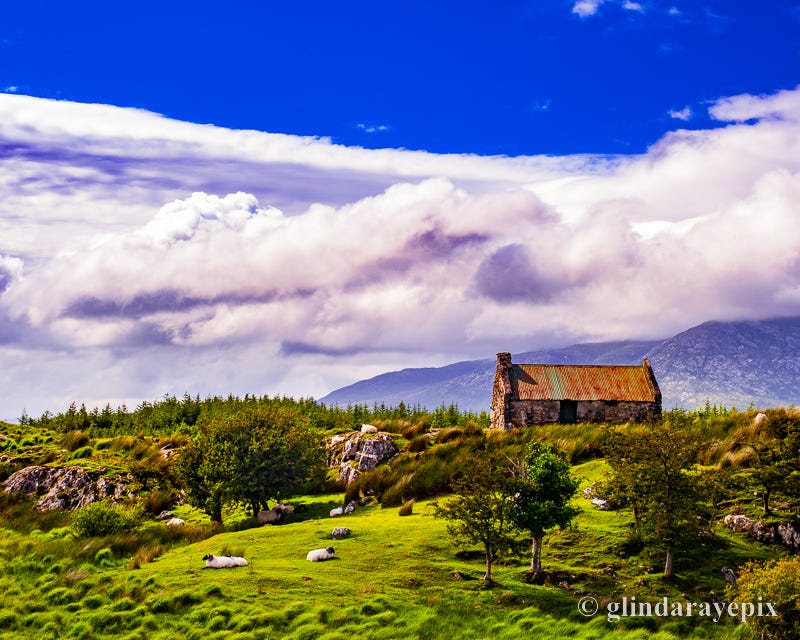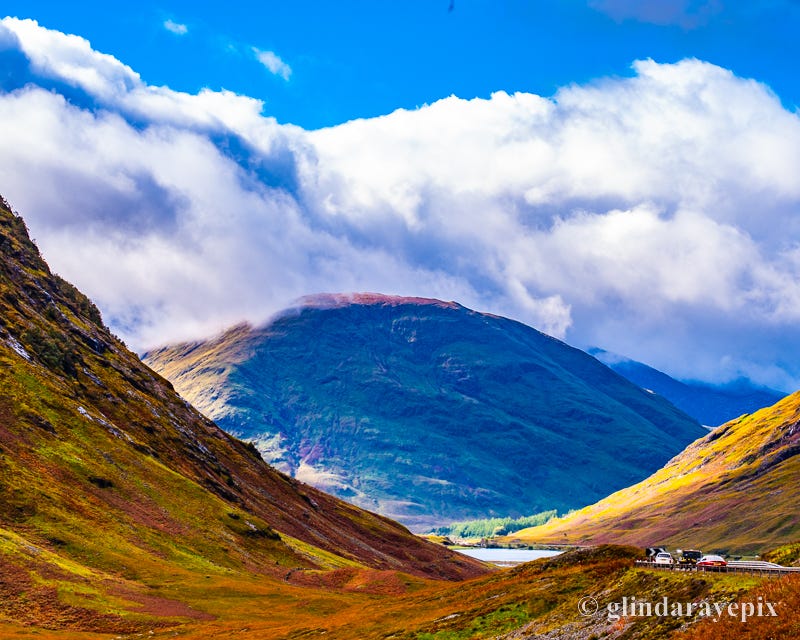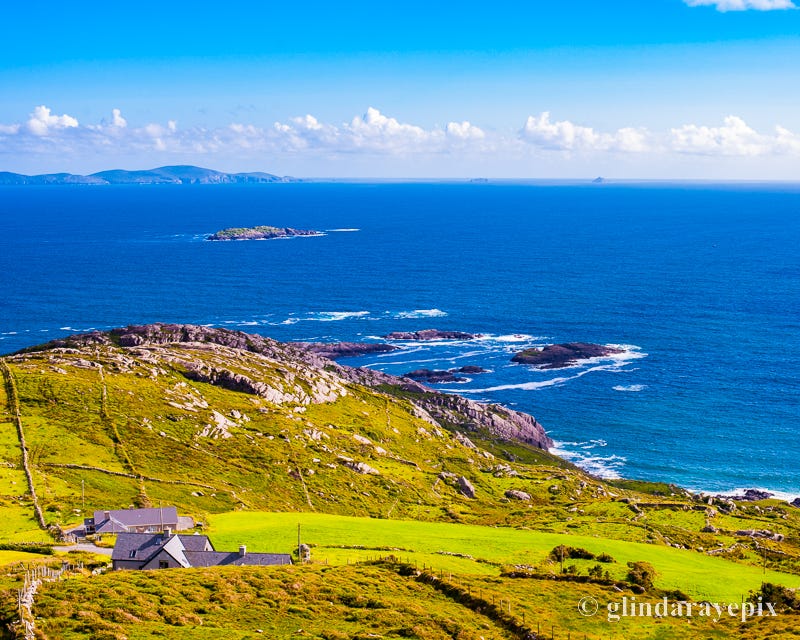An Bhfuil Béarla Agat?
In Search of the Celtic Roots of Europe
You probably won't need to ask the question in the title ("Do you speak English?"), except in Bretagne, where the answer will most likely be "Non!" Centuries of argument and assimilation have ensured that the citizens of the six Celtic Nations—Breizh (Brittany), Kernow (Cornwall), Cymru (Wales), Mannin (Isle of Man), Éire (Ireland), and Alba (the Scottish Highlands)—speak the languages of their Anglo-Saxon and Frankish conquerors. Two of the regions, in fact—Kernow and Mannin—have lost their mother tongues altogether. But even as they subsist at the remote western edges of the Old World, the stories of these related communities take us straight to the heart of European civilization.
The Celts (pronounced with a "K") were the first wanderers of Europe. They spread out from the center of the continent in all directions, from Anatolia to Sicily, to Scandinavia, to the British Isles. Clumsy and inaccurate as the term is, they were Europe's First Nation, but with none of the organized life or self-identification that the name mistakenly implies. They weren't ignorant and they weren't unaware of the world—samples of Chinese silks have been found with their remains. They just existed everywhere.
The rest of European history is a tale of a thousand migrations and invasions, mostly from the south (Romans) and later from the east (Mongols, Huns, Goths, Slavs, and Franks) and the north (Magyars, Jutes, Angles, and Saxons). There were no sovereign nations per se, but ever-increasing clans, tribes, and trading centers linked to an individual leader or family based on conquest, language, and the safety of their lives and food sources.
Nationalism as we know it—with hard borders, ethnic identification, and common languages—was a creation of the 19th century and the Napoleonic Wars. But long before that, the Anglo-Saxons and Danes in Great Britain and the Franks in France had pushed the Celtic peoples out of the rich farmlands and pastures of their lowlands into the inaccessible wildernesses that fronted the Atlantic Ocean and the Irish Sea.
As in the Basque Country of Spain and France, or the Romansch reaches of Switzerland and Austria, isolation caused the Celtic communities to drift apart from each other and from the outside world. Today's Celtic speakers can barely understand each other, although genetically, their chromosomes are as mixed up with the rest of Europe as any American's.
With the worst century of warfare and ethnic cleansing the world has ever seen in the rear-view mirror, the European Union now celebrates the Celts and their peculiar individualism as never before.
Breizh (Bretagne):
Technically, Breizh—or Bretagne to the French and Brittany to the English—was united with France in 1491, but it didn't truly sign up as the final province of the nation until the 1793 French Revolution and the beheading of Louis XVI. In the intervening three centuries of struggle, one event that stands out, at least for the traveling gourmand, is Louis XIV's Ordinance of 1787. The court of Versailles had developed a taste for the oysters of Cancale and the Bélon River, and the King wanted to ensure the quality of his supply. As far as we're concerned, he succeeded.
Kernow (Cornwall):
Butting up against Devon and the ancient Anglo-Saxon kingdom of Wessex, Kernow was bound to attract attention, if only for its huge deposits of the tin needed to smelt copper into bronze. But over the centuries, the Cornish eased their way into the commonweal with relatively little bloodshed. Our favorite story here, connecting Kernow to Éire, is of Saint Ia in the 5th century. The delicate missionary set out from Ireland for Cornwall, sailing across the Irish and Celtic Seas on nothing more substantial than an oak leaf. Before she could convert the Cornish heathen, a local ruler, one Tewdwr Mawr, martyred her in the village that today bears her name, the gorgeous seaside resort of Saint Ives.
Cymru (Wales):
Apart from their still functioning common language, North and South Wales represent two distinct trajectories through history. North Wales turned from slate mining into one of the scenic playgrounds of Europe, with Snowdonia and the legendary hiking trails along its rugged coast. South Wales worked the coal deposits as long as they could and produced an entire generation of impoverished and unemployed, but full-throated baritone miners (think Dylan Thomas, Tom Jones, and Engelbart Humperdinck). The Celtic heritage runs thick here—road signs and directions are a serious challenge for the driving traveler—but there is less stridency than you might expect in the exercise of their culture. Just ask Charles, the former Prince of Wales.
Mannin (Isle of Man):
Mannin wasn't so much conquered as purchased by the British Crown (for £70,000 in 1765), in order to deal with the rampant smuggling of the islanders. With the 19th century British holiday craze, the island's ethnic majority evolved into English, as it stands today. Cheerful hotels like the Claremont on the Douglas Promenade could be found just as easily in Margate, Blackpool, or any seaside English resort. But the locally born Bee Gees are no more, and the last native Manx-speaker died in 1976.
Éire (Ireland):
Éire never fully submitted to the Anglo-Saxon invasion, not least because the Catholic country despised the Protestantism of the English and their Crown. The British tried everything, from subsidies to ferocious warfare and suppression, to neglect and starvation, to moving in an entire aristocracy, to colonizing the North with intransigent Scots. Today, with independence barely a hundred years old, you can still sense an uneasy undercurrent in Anglo-Irish relations, both in governing circles and at the pub down the road. Éire is by far the most successful Celtic Nation at preserving its version of the Gaelic language and culture, even enshrining the tongue in its founding Constitution.
Alba (Scottish Highlands):
With its ferocious warriors and rugged terrain, Alba would probably still be independent today, except for the tendency among the Highlanders to despise each other worse than the English invader. Travel the west coast here, and you’ll find artifacts everywhere of the vicious clan warfare that obsessed the MacDonalds, MacLeods, Camerons, Campbells, and their cousins. When they aligned with the English Crown, the Highlanders became the fearsome shock troops of the British Empire, but at home, their bitter feuds made them relatively easy pickings for the machinations of perfidious Albion. Nevertheless, they do know their way around a distillery.
The Thing…
You might have noticed that we've failed to mention the cuisine in these parts—and yes, that about covers it. As you can see in the photographs, the harsh landscape and cold, gloomy weather don't exactly lend themselves to rich farming and culinary traditions. The seafood, from the oysters of Breizh to the salmon, trout, and herring of Éire and Alba, can be simply spectacular—but the less cooking involved, the better.
And you'll never circulate on these craggy, windswept mountains and winding back roads without a rental car. The locals managed for centuries without motor vehicles, but that was one of the reasons they remained so isolated. The good news being: When you travel between the six Celtic Nations, you'll need to take a car ferry or two. And we can't get enough of those!


